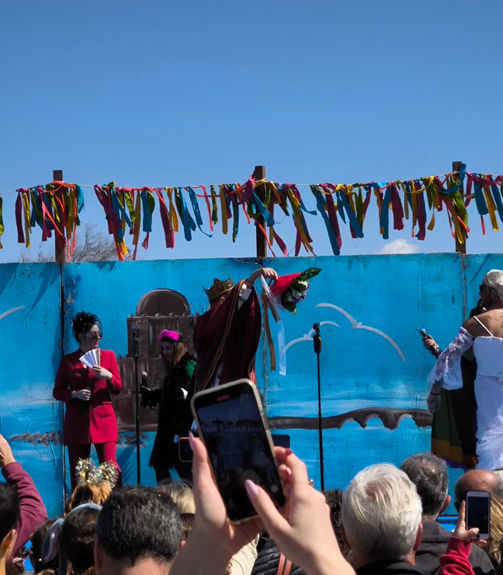
Marriage of Koutroulis
Marriage

of
koutroulis

In Greece, Carnival season is a time of joyous festivities, marked by various events and customs that embody cheerfulness and humor. In the delightful village of Methoni, Carnival holds a special significance, revolving around the renowned tradition of "Tou Koutrouli o Gamos" (The Marriage of Koutroulis), which is rooted in true, historical events.
The tale traces back to Ioannis Koutroulis, a knight native to Methoni, who found himself entangled in a love affair with a married woman. Hindered by the Church's refusal to grant her a divorce, the couple endured 17 years of societal scrutiny and personal attacks, as their relationship was deemed scandalous and illegal by the standards of 14th-century society.

In 1394, a breakthrough came when the woman finally obtained her divorce from the Bishop of Methoni, paving the way for her union with Koutroulis. The long-awaited wedding, symbolizing triumph over adversity, was celebrated with grandeur, lasting several days.
Following the Turkish occupation and beyond, the locals of Methoni incorporated the celebration of Carnival and Lent into their traditions, reviving the "Tou Koutrouli o Gamos" ceremony. Taking place on Ash Monday at 1pm in the seaside square, this parody is accompanied by humorous and satirical events. It is worth noting that the residents of Methoni thoroughly plan and happily participate in the theatrical performance, devoting countless hours rehearsing and preparing for the event. The wardrobe and costumes are a big hit too!
The festivities kick off on Saturday night with a premarital celebration, filled with food, dancing, and surprises planned by friends for the couple, lasting until the early hours of the morning. On Sunday at 6pm, the dowry and bridal bed are ceremoniously sprinkled before everyone gathers in the pedestrian area, indulging in pork, toasted bread, wine and other delicious delicacies.
Ash Monday (also known as "Kathari Deftera") dawns as the day of the wedding, preceded by an impressive and colourful float parade. Following the nuptials, attendees are treated to meatless delicacies (as it is the beginning of lent) and wine as the festivities carry on, embodying the spirit of communal celebration and tradition in Methoni.










